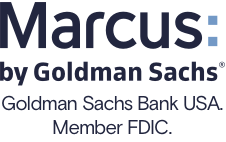Many or all of the products featured here are from our partners who compensate us. This influences which products we write about and where and how the product appears on a page. However, this does not influence our evaluations. Our opinions are our own. Here is a list of our partners and here's how we make money.
Ever thought about using your checking account as a force for good?
The idea came to Caleb Buchbinder as he and Sioux activists at Standing Rock, South Dakota, tried to block construction of the $3.8 billion Dakota Access Pipeline. Protesters say construction will bulldoze sacred land and the pipeline could endanger Standing Rock Reservation’s water supply.
Buchbinder decided to hit the project in the pocketbook by closing his account at Wells Fargo, after learning that the bank was among those providing financing. His balance of about $800 would be, as he put it, “a drop in the bucket,” but he hoped it would become part of something much bigger. He and other activists also started DefundDAPL.org, where visitors can log the amount of money they’ve pulled from banks linked to the pipeline.
» MORE: How to switch banks
For some consumers, especially younger ones, a bank’s checking policies or interest rates matter less than its values. In recent months, social media campaigns have led other consumers to switch banks in response to controversial social issues.
In the age of brands that are built on strong corporate responsibility messages, such as Warby Parker eyewear and Toms Shoes, it’s not surprising that consumers would examine banks through a social lens.
“Consumers today are making the connection between their personal financial activities and how they can align with a financial institution that shares their values,” says Vincent Siciliano, president and CEO of New Resource Bank, a San Francisco institution focused on lending to sustainable companies and nonprofits.

Member FDIC
SoFi Checking and Savings

4.60%
$0

Member FDIC
EverBank Performance℠ Savings

5.15%
$0
Withdrawals as protest
At least one banker sees potential for a large consumer shift toward values-based banking.
“We know how mass movements can start and increase and aggregate to something that moves hearts and minds — and markets,” says Kat Taylor, the co-CEO of Beneficial State Bank, a West Coast bank owned by a foundation focused on social and environmental impacts of the banking industry. Taylor pointed to DefundDAPL.org, where people had reported withdrawing more than $65 million in protest by mid-February.
Municipalities are joining in, too: The City of Seattle recently voted to divest $3 billion from Wells Fargo over its role in the pipeline.
Deposits as support
Pained by news of racially charged killings throughout the U.S. last year, Justin Garrett Moore took steps to align his money with his hopes for greater social justice.
Last summer, the New York City-based urban planner closed his account at a national bank and transferred $12,000 to black financial institutions. He became an advocate for the campaign perhaps best known as #BankBlack, posting information about black banks on BankBlackUSA.org.
Individuals like Moore have caused an inflow of funds to minority-owned banks, which have struggled in recent years.
“The volume of deposits generated from the #BankBlack movement to black banks in 2016 is unprecedented,” says Teri Williams, the president and COO of OneUnited Bank. The bank, among the largest of the 23 black-owned banks in the U.S., gained $20 million in deposits last year as a result of the push, Williams says, allowing it to make $130 million in loans and increase national staff by 10%.
Where to bank instead
Finding a bank that fits your values can take a little work.
“If you care about the environment or social justice, then consider a values-based bank that is part of the Global Alliance for Banking on Values,” says New Resource’s Siciliano. “If there is no GABV bank in your area … check out one of the six B Corp banks around the U.S.”
B Corp banks are for-profit companies that have been voluntarily certified by the nonprofit group B Lab as meeting social and environmental standards.
Taylor suggests consumers look for an institution that “does not maximize overdraft fees, clearly communicates pricing, [and] makes loans to businesses and nonprofits that you care about.” Her bank has an online toolkit to help any consumers who want to find such a values-based bank.
This article was written by NerdWallet and was originally published by USA Today.
On a similar note...
Find a better savings account
See NerdWallet's picks for the best high-yield online savings accounts.








